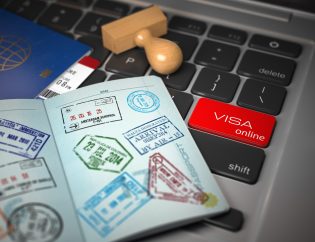
In today’s interconnected world, navigating diverse cultural, social, and professional environments is key to global success. Whether you’re an expatriate, a digital nomad, or a global business leader, understanding the psychological factors that drive success in these contexts is crucial.
This article explores the mindset, skills, and strategies needed to thrive in diverse environments.
1.
Why Cultural Adaptation Matters
Cultural adaptation is the ability to understand and integrate into different cultural contexts. Key benefits include:
- Building Strong Relationships: Understanding cultural nuances fosters trust and collaboration.
- Improving Communication: Tailored communication reduces misunderstandings.
- Boosting Professional Growth: Adaptability opens doors to global opportunities.
Example: A U.S. manager working in Japan increased team cohesion by adopting culturally appropriate leadership styles.
2.
Core Skills for Thriving in Diverse Environments
Emotional Intelligence (EQ)
The ability to recognize and manage emotions, both your own and others’, is vital for navigating cultural differences.
Open-Mindedness
Be willing to embrace new perspectives and challenge your assumptions.
Adaptability
Flexibility in your approach allows you to navigate unfamiliar situations with ease.
Cross-Cultural Communication
Learn to identify and respect verbal and non-verbal cues unique to each culture.
3.
Overcoming Common Challenges
Culture Shock
Feelings of discomfort or disorientation when adapting to a new culture are normal.
Solution: Take time to learn local customs and engage with the community.
Language Barriers
Miscommunication can hinder relationships and productivity.
Solution: Use translation tools and take language lessons.
Professional Differences
Workplace norms vary widely across cultures.
Solution: Observe and adapt to local professional etiquette.
4.
Developing a Global Mindset
A global mindset combines cultural awareness with strategic thinking. Steps to cultivate this include:
- Education: Learn about global history, economics, and cultures.
- Travel: Immerse yourself in different environments.
- Networking: Connect with professionals from diverse backgrounds.
Pro Tip: Join international organizations or communities to expand your global perspective.
5.
The Role of Diversity in Innovation
Diverse teams bring unique perspectives, leading to:
- Creative Problem-Solving: Varied experiences inspire innovative solutions.
- Enhanced Decision-Making: Diverse input improves outcomes by addressing blind spots.
- Global Competitiveness: Teams that reflect global markets are better positioned to succeed.
6.
How NomadicX Supports Global Success
NomadicX offers tailored programs to help individuals and businesses thrive globally:
- Cultural Training: Workshops on cross-cultural communication and adaptation.
- Relocation Support: Guidance for settling into new environments.
- Professional Development: Resources for building global leadership skills.
7.
Real-World Example
Case Study: Elena, a marketing executive, used NomadicX’s cultural training to prepare for a leadership role in Dubai. By understanding local customs and expectations, she successfully launched a regional campaign that resonated with diverse audiences.
8.
The Future of Global Workforces
As remote work and international mobility continue to grow, developing a global mindset will be essential for professionals and organizations alike. Embracing cultural diversity is no longer optional—it’s a cornerstone of success in a connected world.











